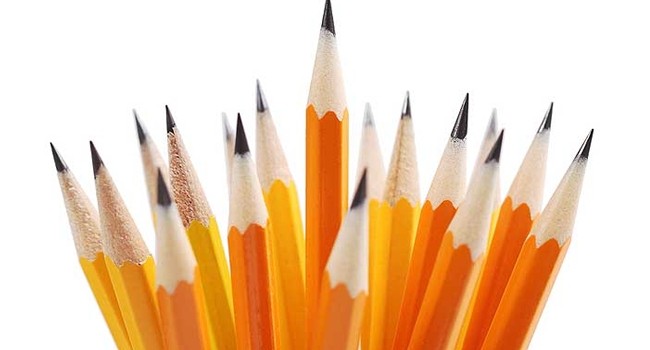
With the value of oil and the Naira currency in decline, Nigeria is turning to old-fashioned pencils to provide relief. The Minister of Science and Technology, Ogbonnaya Onu, recently announced that the first pencil plant in West Africa would start production in 2018.
Advertisement
“We have all the things to produce a pencil, which is used by a large number of people from our young pupils to engineers,” Onu told Nigerian newspaper The Daily Trust. “The private sector will come in to do the production and we will see the benefits. When production of pencils begins, Nigerians will be amazed at the multiplier effects. It will create a minimum of 400,000 jobs.
” The Minister explained that pencils use raw materials that Nigeria possesses in abundance, such as wood, graphite, and rubber. All pencils are currently imported, which has become prohibitively expensive as the Naira struggles. Reviving industry It is hoped that pencil production can help to revive the manufacturing sector, which has declined since the oil boom of the 1970s.
The textile industry alone employed around 350,000 people in the 1980s, a figure that has fallen to 25,000 today. The total manufacturing sector employed 18% of the workforce in 1982, but under 12% today.
The government has adopted former President Goodluck Jonathan’s Nigeria Industrial Revolution Plan (NIRP) to scale up industrial production. Onu claims that pencils will be the first of 1,000 products that could now be manufactured domestically, with six-cylinder engines next on the list. Pencils can be a logical first step in developing industrial capacity, believes Professor of Economics Stephen Onyeiwu of Allegheny College.
Advertisement
“Pencils use simple, mature technology and raw materials that can be sourced domestically,” says Onyeiwu. “The size of the market is huge, and we could export to other African countries.” The Professor believes that success with pencils could pave the way for more sophisticated production. Economic analysts Mckinsey predict Nigerian manufacturing has the potential to deliver output of $144 billion a year by 2030, up from $35 billion in 2013.
Faith gap However, Onyeiwu is skeptical of state-led industrial enterprise, citing the past failure of fertilizer and cement initiatives, and stresses the need for private sector leadership.
“The history of the government’s involvement in the industrial sector has been disappointing,” he says. “The government’s role should be to facilitate…they should introduce policies to attract private investors (such as) to bring down interest rates.”
Angola makes new steel from old guns Reaction to the pencil project has been largely negative, with many social media users noting the contrast with neighboring Uganda’s launch of a solar-powered bus. One scathing article by Nigerian journalist Emmanuel Uchenna Ugwu attacked the scheme as a “dubious joke.”
“It is a pity that Nigeria is fantasizing about the made-in-Nigeria pencil in this age,” the author wrote. “That the government of Nigeria is projecting the coming pencil as a sort of technological revolution shows that Nigeria has recorded satisfactory success only in insulting and betraying its potential.”


